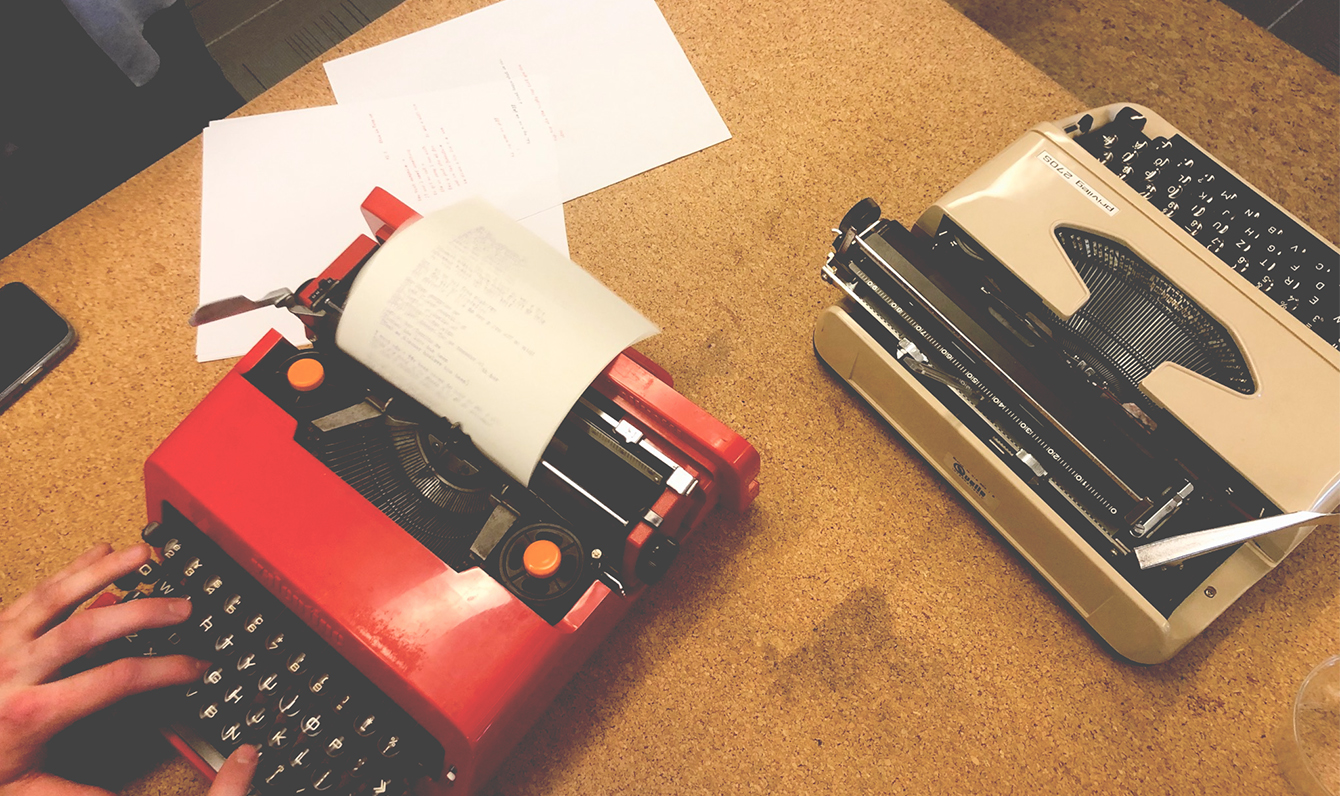10 Pieces of Advice to Get You Writing
Oct 09, 2019 Beth Monaghan
We’ve kicked off an essay contest at InkHouse in the service of two goals: continue to improve our writing skills, and shift our perspectives. We’re going to be exploring the theme of Moments of Clarity through writing, an act of consciousness in and of itself that opens us up to new perspectives.
Writing is technical, personal, and at times, frustratingly difficult for those of us who get stuck or feel like we’re not good enough. As I was encouraging people to sign up for the contest, I went in search of writing advice, which I’ve compiled below in case it helps you get writing, because if you’re a writer like me, writing is like air.
1. On getting started: “Trouble getting started with writing, that fear of the blank page, really amounts to making it through the first ninety seconds. After that, you've splashed some words on the screen. They may not be great ones, but some of them could be used and there are more good ones backing them up. It's just about getting through the very first ‘Should I?... Do I dare?...’ Then you're on your way.” - Stuart Horwitz of Book Architecture (who’s also our contest coach and workshop leader)
2. On feeling like you have to know the end before you begin: “Writing is like driving at night in the fog. You can only see as far as your headlights, but you can make the whole trip that way.” - E.L. Doctorow
3. On worrying that a single moment in time isn’t important enough to write about: “The more you wish to describe a Universal, the more minutely and truthfully you must describe a particular.” - Brenda Ueland
4. On finding the moments worthy of the page: “Finding the ‘moment’ of the story--or even the ‘moment’ of a scene--can be one of the great revelations of the writing process. You recognize what this moment means: it is the point at which everything changes, not only for your characters but for you as well.” - Colum McCann

5. On wooing your audience: "Charm people on the page the same way you charm them in real life." - Mary Karr
6. On what you need to write: “Space and string:
-
- Space means the mental quiet as well as a physical place that is comfortable and serene. A cocoon where you can spend a long stretch of uninterrupted time.
- String, in the journalism vernacular, means notes, or raw material. This can be facts and figures, pictures, documents, jotted ideas, transcripts, outlines, prose, even an inspirational quote, poem or song lyric. I don’t consider string to be writing per se but it’s what you do with the string that becomes the writing. Without it, you stare at a blank page and that is a very tall mountain to climb that feels more like a job than an inspirational ascent. Without string, the work is slow and tedious. And it’s easier to give up. So, before you enter your cocoon, gather all the materials you need.” - Tina Cassidy (author of four books and CMO at our client WGBH)
7. On editing: “I'm a big believer in this popular quote among word geeks: ‘Write without fear. Edit without mercy.’ (It's also on a sticker you can pick up at Grammarly's offices.) Write it, step away from it, read it, and hack away. Most of my first drafts and final copy are distant cousins, at best.” - Senka Hadzimuratovic (at our client Grammarly)
8. On writing in your own voice: “It’s okay to do it your way.” And “If it’s easy for you, it’s also easy for the reader.” And also, permission to fail, “The greatest job of writing is to start again, not start over.” - Starla J. King
9. On the fear that it will be bad: “Now practically even better news than that of short assignments is the idea of shitty first drafts. All good writers write them. This is how they end up with good second drafts and terrific third drafts...Perfection is the voice of the oppressor, the enemy of the people. It will keep you cramped and insane your whole life, and it is the main obstacle between you and a shitty first draft.” - Anne Lamott
10. On why you should write: “Advice? I don’t have advice. Stop aspiring and start writing. If you’re writing, you’re a writer. Write like you’re a goddamn death row inmate and the governor is out of the country and there’s no chance for a pardon. Write like you’re clinging to the edge of a cliff, white knuckles, on your last breath, and you’ve got just one last thing to say, like you’re a bird flying over us and you can see everything, and please, for God’s sake, tell us something that will save us from ourselves. Take a deep breath and tell us your deepest, darkest secret, so we can wipe our brow and know that we’re not alone. Write like you have a message from the king. Or don’t. Who knows, maybe you’re one of the lucky ones who doesn’t have to.” - Alan Watts
I disagree with Alan Watts on one point: writers are the lucky ones. Writing is the best way I know to get to a new place of understanding and being in the world. I’d love to hear why you write and how you write. Share your thoughts with us using the #InkHouseWrites hashtag.

.png)




